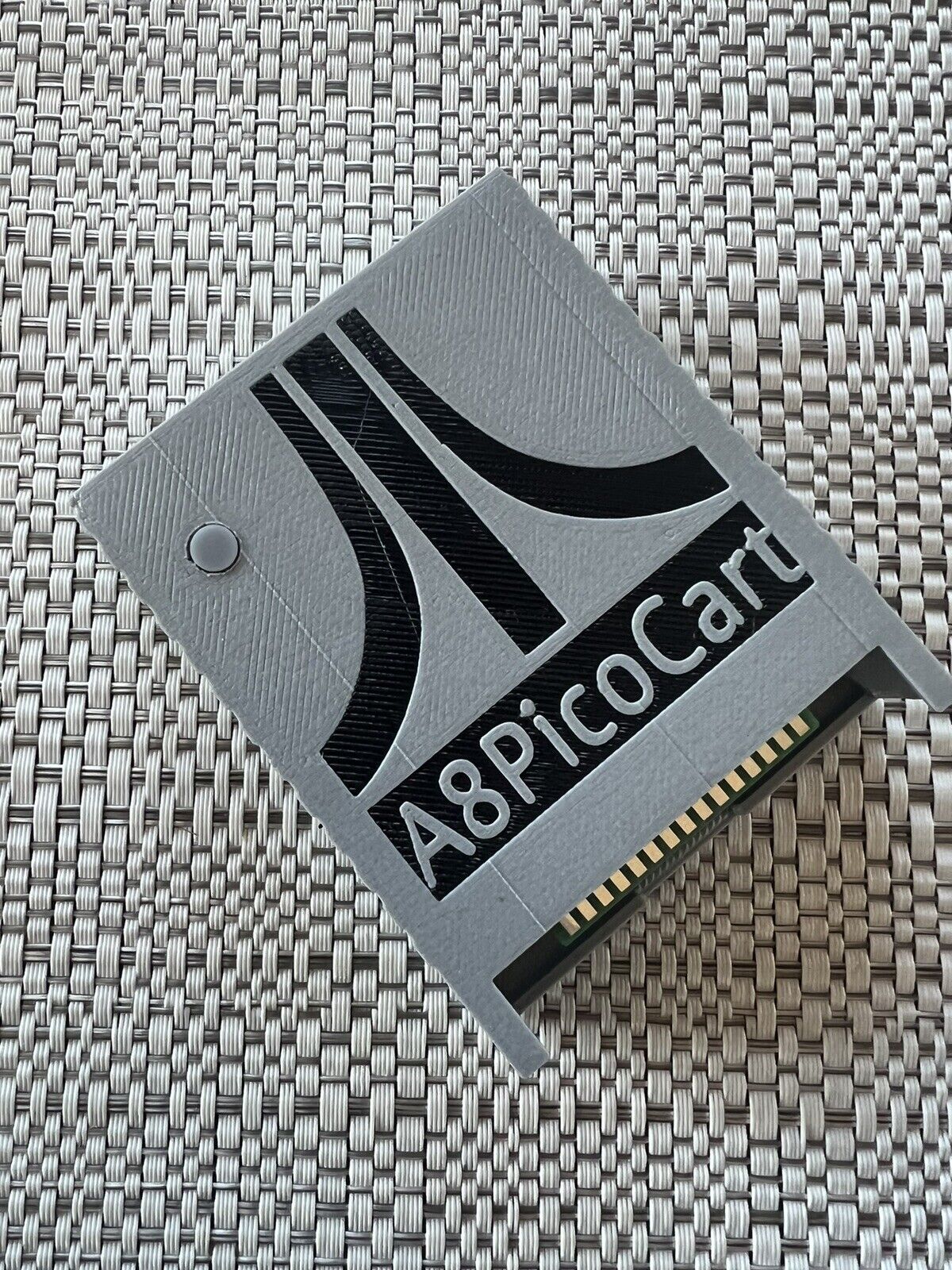A8picoCart Atari 130 / 65 XE 800 / 1200 XL XEGS multicart UnoCart clone game For Sale

When you click on links to various merchants on this site and make a purchase, this can result in this site earning a commission. Affiliate programs and affiliations include, but are not limited to, the eBay Partner Network.
A8picoCart Atari 130 / 65 XE 800 / 1200 XL XEGS multicart UnoCart clone game:
$32.95
The A8PicoCart is a multi-cart for the Atari 8-bit (XL/XE/XEGS). When plugged into a PC by USB it becomes a Mass Storage device allowing ROM/CAR/XEX & ATR files to be copied to the cartridge. When plugged into an Atari these files are shown on the menu and the device will either emulate the selected cartridge type or act as a XEX file launcher.
With its ability to store and run multiple games and applications, this cart is a must-have for any Atari enthusiast. Featuring 16MB of ram, you will have plenty of space to store your favorite games and software. Most of my carts have 300+ programs on them.
Compare to AtariMax cart, they have very limited storage 20-70 programs and only supports ROMs. This cart supports ROM, CAR, XEX and some ATR support. See the a8picoCart github page for more details.
*** Many games and utilities pre-loaded! ***
I am using the latest version of the printed circuit board and 3D Printing the cases in a variety of colors.
UPDATE *** New Case design ***
Added internal supports to strengthen screw standoffs, reset button enhancement and a boot sel button on back allowing for firmware updates without disassembly!
This is an opensource device you can build and make yourself, including the 3d printed case. I have produced extras to help those who may not have the time or tools to do it themselves!
Donations have been made to Robin Edwards for all carts I am selling.
I use these devices regularly and have been very impressed with them!
*** 400 / 800 support update***
I have tested 400 and heard 800 work with 8/16k ROMs with pressing Atari reset button after selecting game. Possibly larger ROMs If upgraded to 32/48k.
Credits:
Design, hardware and firmware by Robin Edwards (electrotrains at atariage)
XEX loader and OS modifications by Jonathan Halliday (flashjazzcat at atariage)
Altirra LLE OS used with permision from Avery Lee (phaeron at atariage)

Related Items:
Warning: Invalid argument supplied for foreach() in /home/vscan/public_html/store/relateditems.php on line 72
![]()
Documentation
- AIX Local Security Checks
- Backdoors
- CentOS Local Security Checks
- CGI abuses
- CISCO
- Databases
- Debian Local Security Checks
- Default Unix Accounts
- Denial of Service
- Fedora Local Security Checks
- Finger abuses
- Firewalls
- FreeBSD Local Security Checks